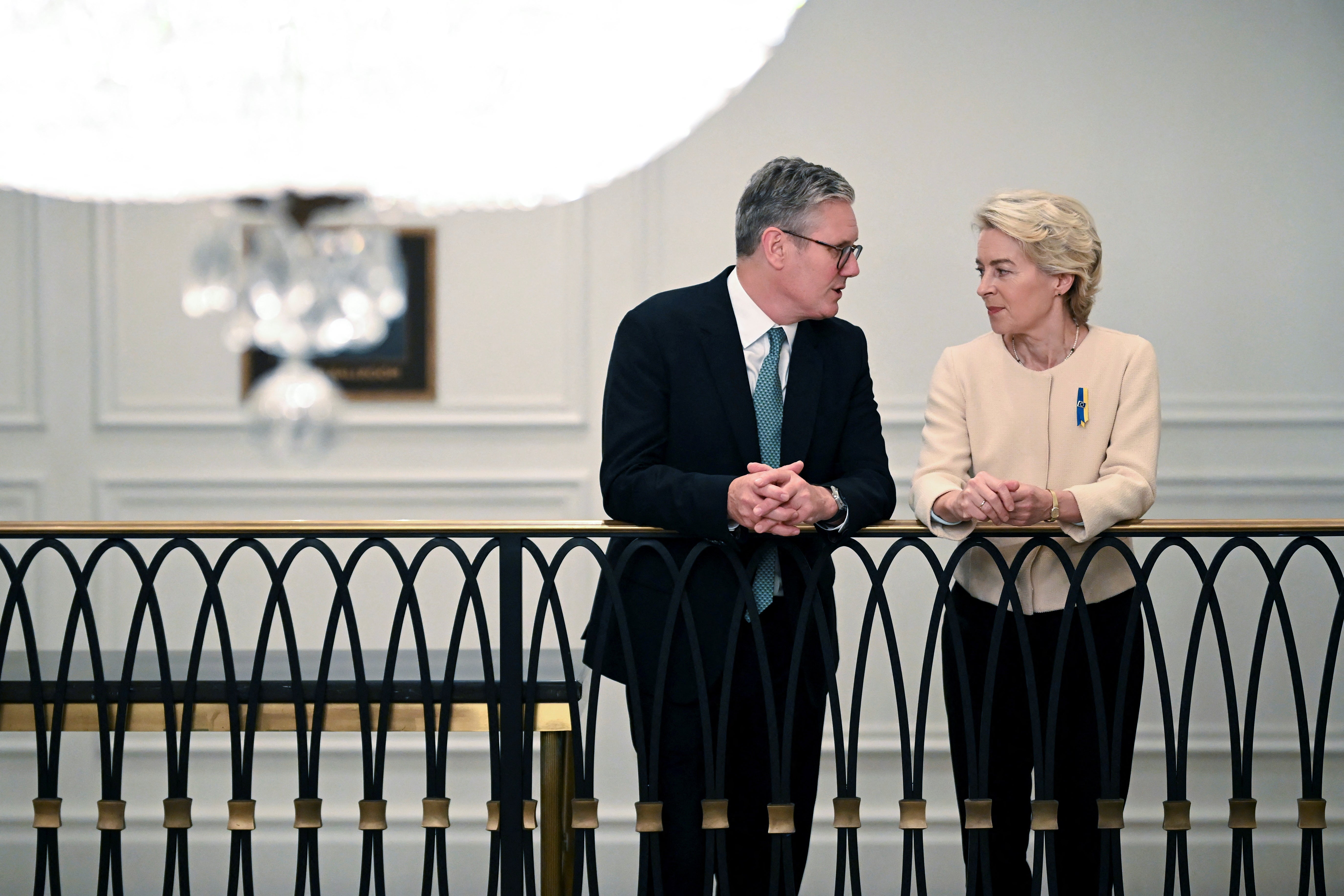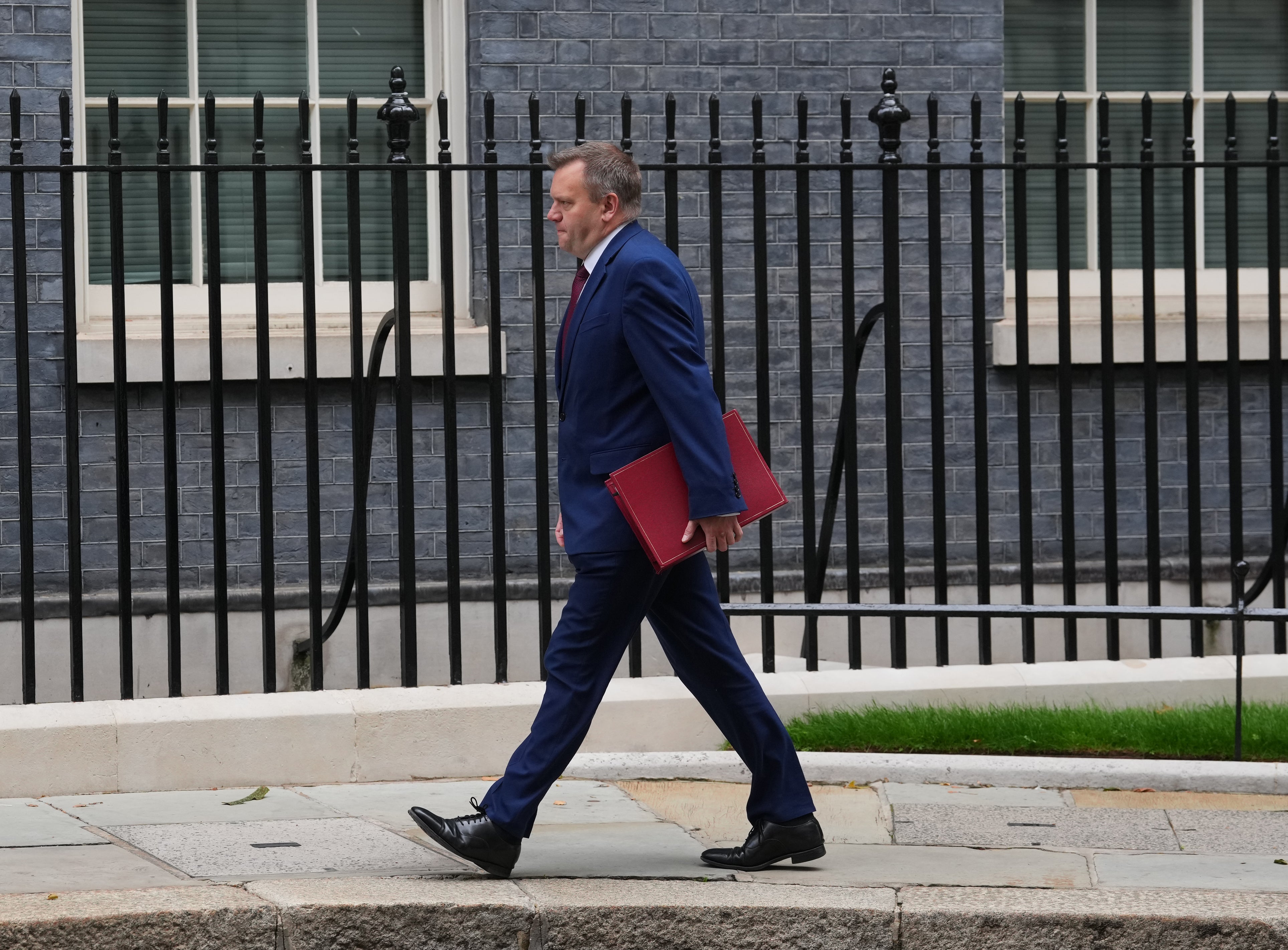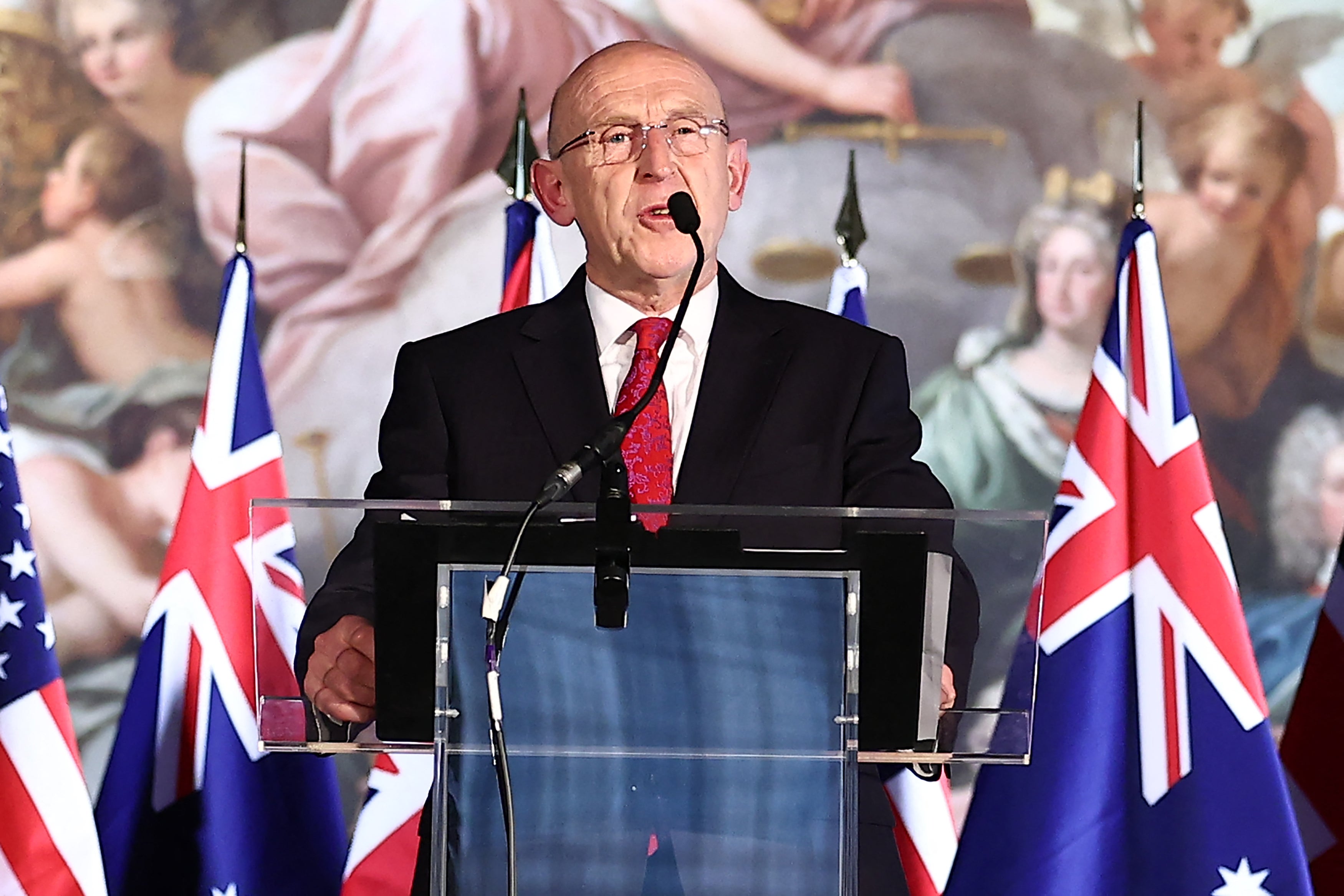Revealed: Starmer’s ‘three pillar’ blueprint to rebuild EU ties with youth mobility a negotiating chip
Exclusive: Keir Starmer and Ursula von der Leyen have announced they will meet next week in Brussels and The Independent can reveal the government’s plan to reset the UK’s relationship after Brexit
Your support helps us to tell the story
From reproductive rights to climate change to Big Tech, The Independent is on the ground when the story is developing. Whether it's investigating the financials of Elon Musk's pro-Trump PAC or producing our latest documentary, 'The A Word', which shines a light on the American women fighting for reproductive rights, we know how important it is to parse out the facts from the messaging.
At such a critical moment in US history, we need reporters on the ground. Your donation allows us to keep sending journalists to speak to both sides of the story.
The Independent is trusted by Americans across the entire political spectrum. And unlike many other quality news outlets, we choose not to lock Americans out of our reporting and analysis with paywalls. We believe quality journalism should be available to everyone, paid for by those who can afford it.
Your support makes all the difference.Sir Keir Starmer is still open to agreeing a deal with the EU on free movement for young people – but does not want to give away his negotiating hand too early as he prepares to head to Brussels next week.
The Independent understands that the Labour government has a “three pillar” blueprint to reset the relationship with the EU in painstaking talks.
The main talks will be headed by European affairs minister Nick Thomas-Symonds, who is based in the Cabinet Office and has been handed some of the most complex and sensitive tasks in the Starmer government.
The youth mobility scheme (YMS) has become a symbolic issue for those who claim that Sir Keir is not being ambitious enough with his EU relationship reset.

While the prime minister has told The Independent that he is “very serious” about the reset, pro-EU activists in groups like the European Movement and sources in Brussels have questioned whether the government wants to achieve much change.
With Sir Keir and European Commission president Ursula von der Leyen tweeting about their meeting at the United Nations this week and agreeing to meet in Brussels next week, the talks seem set to properly start.
The revelations come as Pedro Serrano, the EU ambassador to the UK, told Times Radio that he believes a youth mobility scheme will be agreed, suggesting that it could cover areas like gap years for under-30s. There have been discussions that the scheme would cover all under-30s and allow for ease in getting jobs in the UK or EU but Mr Serrano appears to be suggesting a more limited deal.
He said: “This is about ensuring that our youth continues to get together to know each other. And if we have a mechanism that allows young British citizens to go for a gap year, for example, to any of 27 states within the European Union — to do a bit of learning and get pay … while they’re there, why not?”
It is understood that Mr Thomas-Symonds has made it clear that he wants to take a careful approach in a new positive atmosphere created by the change of government.
He is understood to believe that the briefings from Brussels are coming from people who were involved in the talks after 2016 and still have the “[negative] attitude of those years in their minds”.

A senior source said: “We are getting a much more positive response now, not least because we spoke a lot in the aftermath of the referendum and they know we have a much more positive attitude towards the EU than the last [Tory] government.”
But there is an acknowledgement that the talks will be “incredibly difficult”.
The source noted: “They [the EU] are very good at negotiations. They are very tough.”
This is why Sir Keir and his government have not been in a rush to agree to the YMS, even though there is widespread support for it in Brussels and European capitals, particularly Berlin,
“If you agree to something like youth mobility and make it clear you want it then the cost of getting it goes up,” the source added. “We need to agree what youth mobility means as well. It needs to be beyond mobility for students with schemes like Erasmus+.
“At some point you have to say well we want this and we will agree to this but there is no point doing that too soon before you have got other concessions.”
Mr Thomas-Symonds is understood to believe the success of the talks will depend on whether a new pragmatic atmosphere prevails in the EU.
“The sense is that there are a lot of pragmatic things we could agree on which would be good for us both, but, of course, there are ... purists arguing about the integrity of the European single market,” the source said.

The European affairs minister has spoken of a “three pillar” strategy for the rest: defence and security; safety, including immigration and tackling crime; and trade.
The defence strategy is based on reviving the Lancaster House defence pact with France, creating a new deal with Germany and using this as the basis of a EU-UK security pact in conjunction with Nato.
Defence secretary John Healey is understood to be preparing a major announcement for a substantial agreement with Germany before the end of October.
Sources close to him have said: “We will always base our defence policy on Nato but whoever wins the election in the US this year [Donald Trump or Kamala Harris] we know that their focus will be increasingly going towards the Pacific and China.
“That means Europe will have to do more of the heavy lifting, invest more in defence and work more closely together.”
The source close to Mr Thomas Symonds noted: “We [the UK] are in a good place with defence and security because we have a lot to offer and the EU knows it.”
The safety issue will look at shared data and working together on tackling crime, including organised gangs; particularly those involved in human trafficking and irregular immigration leading to the small boats on the Channel.
“A lot of this is very obvious and we all have a shared interest in making this work better,” said the source.
Complications may emerge over extradition agreements and border controls. But the toughest area for the government is trade, which is third on the list.
Already there are concerns about the impact of the Border Target Operating Model, the digital border checks, where both the UK and EU have postponed the implementation for fresh goods such as fruit and vegetables because of the length of time checks will take.
Sir Keir has indicated he is prepared to look at dynamic alignment of regulations with the EU. But there is an acknowledgement that with a market of 500 million people it is hard to get changes out of the bloc.
However, Mr Thomas Symonds is said to believe that the EU is not happy with the agreement they made with David Frost and Boris Johnson and accept it is not working well. So if there is a pragmatic attitude then progress can be made.
Join our commenting forum
Join thought-provoking conversations, follow other Independent readers and see their replies
Comments